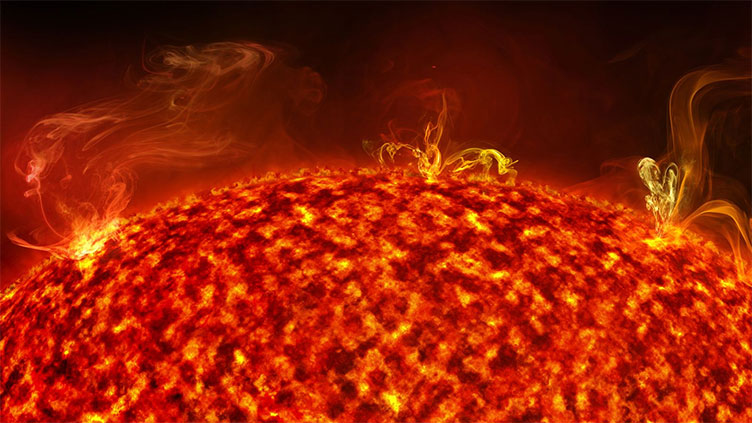Extreme global warming could eventually wipe out humans, supercomputer climate models warn

Technology
Temperatures could spiral to 158F - transforming Earth into environment devoid of foods, water
(Web Desk) - Temperatures could spiral to 70C (158F) - transforming Earth into a "hostile environment devoid of food and water", scientists warn - as the first ever supercomputer climate models are published, projecting a "very bleak distant future" for humanity.
Extreme global warming will likely wipe all mammals - including humans - off the face of the Earth in 250 million years, according to a new scientific study.
Temperatures could spiral to 70C (158F) and transform the planet into a "hostile environment devoid of food and water", the research warns.
The planet would heat up to such an extent that many mammals would be unable to survive - and the Earth's continents would merge to form one hot, dry, uninhabitable supercontinent.
The apocalyptic projections are from the first-ever supercomputer climate models.
They suggest the sun would become brighter, with tectonic movements unleashing huge amounts of carbon dioxide (CO2) into the air through volcanic eruptions.
The Earth would become so hot that only 8% to 16% of the projected supercontinent would be habitable.
Mammals, including humans, are better adapted to living in the cold, and are less able to deal with extreme heat.
The study's lead author, Dr Alexander Farnsworth of the University of Bristol, said: "The newly emerged supercontinent would effectively create a triple whammy, comprising the continentality effect, hotter sun and more CO2 in the atmosphere, of increasing heat for much of the planet.
Advertisement
"The result is a mostly hostile environment devoid of food and water sources for mammals.
"Widespread temperatures of between 40C to 50C, and even greater daily extremes, compounded by high levels of humidity would ultimately seal our fate.
"Humans - along with many other species - would expire due to their inability to shed this heat through sweat, cooling their bodies."
The authors of the research believe CO2 levels could rise from around 400 parts per million (ppm) today to more than 600 ppm by the time of the formation of the supercontinent - named Pangea Ultima.
This assumes, however, that humans stop burning fossil fuels - "otherwise we will see those numbers much, much sooner", warned Professor Benjamin Mills, who calculated the future CO2 projections for the study.

